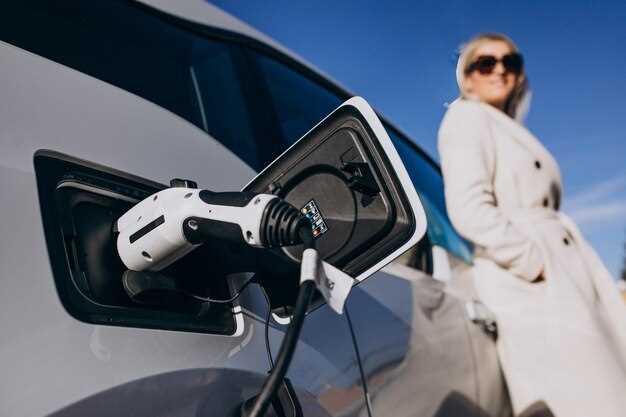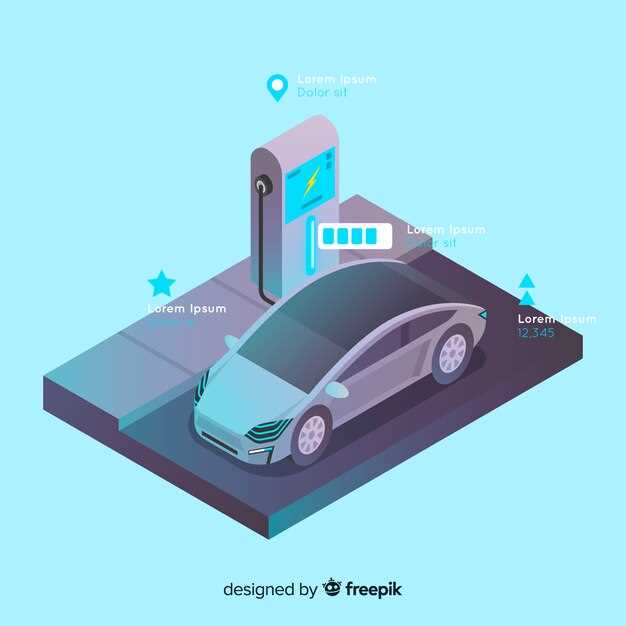
The automotive industry is undergoing a revolutionary transformation as we step further into the future of electric vehicles (EVs). As concerns over climate change and fossil fuel dependence intensify, electric cars have emerged as a primary solution. This shift is not merely a trend; it represents a profound innovation that reshapes how we think about transportation, energy consumption, and environmental sustainability.
Electric vehicles are more than just cars powered by batteries. They symbolize a commitment to a greener future and efficient technological advancements. As production scales up and infrastructure improves, the potential for enhanced driving experiences and smart technology integration becomes paramount. The future of electric cars promises innovations such as extended battery life, faster charging times, and autonomous driving capabilities, ushering in a new era of mobility.
In examining the future of electric vehicles, it is essential to understand the challenges and opportunities that lie ahead. From expanding charging networks to evolving battery technologies, the route to widespread EV adoption is paved with innovation. By exploring these developments, we can gain deeper insights into how electric vehicles will not only redefine our roads but also contribute to a more sustainable and efficient future.
Advanced Battery Technologies for Long-Distance Travel

The future of electric vehicles (EVs) heavily relies on the innovation of advanced battery technologies, crucial for enabling long-distance travel. As consumer demand grows for more efficient and reliable electric transportation, several key trends are emerging in battery development.
Solid-state batteries represent a significant breakthrough in the quest for longer range. Unlike traditional lithium-ion batteries that use liquid electrolytes, solid-state batteries utilize solid materials, improving energy density and safety. This innovation could lead to EVs with a range of over 500 miles on a single charge, thus addressing range anxiety among consumers.
Fast-charging technologies are also evolving rapidly. New methods such as ultra-fast charging solutions can replenish an EV’s battery to 80% capacity in under 30 minutes. This capability is critical for long-distance travel, making it easier for drivers to incorporate charging stops without significant delays.
The integration of battery management systems (BMS) equipped with artificial intelligence is shaping the future of energy utilization in electric vehicles. These systems monitor battery health, optimize performance, and enhance lifespan, ensuring that drivers can rely on their vehicle for long journeys.
Research into alternative materials, such as silicon and sodium-ion batteries, is gaining traction. These materials may offer higher capacity and lower costs compared to conventional lithium-based solutions. Exploring these options is essential for sustainable production and improved energy storage solutions in EVs.
In conclusion, advancements in battery technology are pivotal for the electric vehicle industry as it transitions into a future defined by enhanced range, reduced charging times, and improved efficiency. These innovations promise to redefine the landscape of long-distance travel in electric mobility.
Integration of AI in Electric Vehicle Navigation Systems
The integration of Artificial Intelligence (AI) into electric vehicle (EV) navigation systems is poised to revolutionize how we interact with our cars. As the automotive industry moves towards greater reliance on technology, understanding current trends in AI-powered navigation will be essential for shaping the future of EVs.
AI enhances navigation systems by utilizing real-time data processing, enabling better route optimization and traffic prediction. By analyzing vast amounts of data from traffic patterns, weather conditions, and user preferences, AI systems can provide drivers with the most efficient routes. This capability not only saves time but also optimizes energy consumption, which is crucial for the performance of electric vehicles.
Moreover, the future of EV navigation will involve increased automation. With the advent of advanced driver-assistance systems (ADAS), AI can process sensory input from the vehicle, allowing for autonomous navigation. Cars equipped with these systems can make decisions on behalf of the driver, adjusting routes dynamically based on ongoing conditions. This trend will make driving safer and more efficient, optimizing the overall travel experience.
Additionally, as EV technology advances, the integration of AI will extend to personalized navigation experiences. Systems will learn individual driving habits and preferences, adapting suggestions naturally. This personalization will enhance user engagement, making EVs not only smarter but also more enjoyable to drive.
In conclusion, the fusion of AI in electric vehicle navigation systems represents a significant trend towards a smarter future for cars. By improving efficiency, enhancing safety, and personalizing the driving experience, AI is set to play a pivotal role in the evolution of electric vehicles, ultimately shaping the landscape of transportation in an increasingly automated world.
The Role of Renewable Energy in Charging Infrastructure Development

The integration of renewable energy sources is pivotal in the advancement of charging infrastructure for electric cars. As the demand for sustainable transportation grows, the reliance on clean energy to power these vehicles becomes essential. Renewable sources such as solar, wind, and hydroelectric power not only reduce greenhouse gas emissions but also ensure a more stable and resilient energy supply.
To support the increasing number of electric cars on the road, charging stations must be designed with renewable energy in mind. This can take the form of solar panels installed at charging sites, where sunlight is converted into electricity, directly powering the chargers. Such an approach minimizes the carbon footprint associated with electricity generation and aligns with global efforts to combat climate change.
Additionally, the use of wind energy can complement the charging infrastructure, particularly in areas with favorable weather conditions. Wind turbines can generate significant amounts of electricity, which can be stored or used in real time to charge electric vehicles. This synergy between two renewable sources enhances energy efficiency and contributes to a sustainable ecosystem for electric mobility.
Ultimately, the future of electric vehicle innovation hinges on the successful development of charging infrastructure that harnesses renewable energy. By investing in these technologies, we can ensure that electric cars not only foster cleaner transportation but also promote a greener and more sustainable energy paradigm for generations to come.






